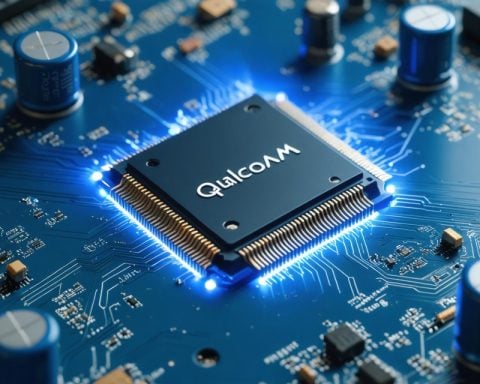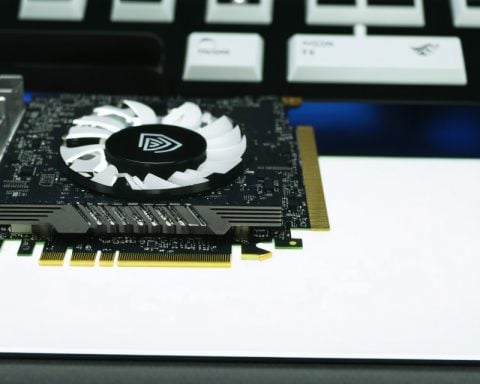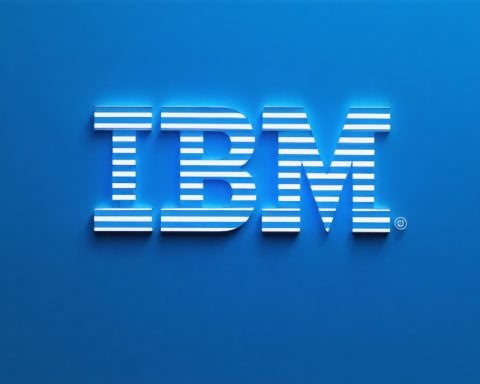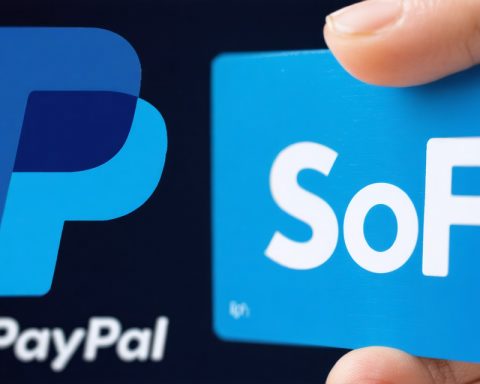- Nokia initiates a share buyback program on November 25, 2024, aiming to buy back up to 150 million shares by the end of 2025.
- With a budget of €900 million, this move seeks to enhance shareholder value and manage stock dilution from incentives and acquisitions.
- Nokia complies with Market Abuse Regulation (EU) 596/2014, ensuring transparency and ethical financial practices.
- The company focuses on sustainable networking solutions, leveraging research from Nokia Bell Labs.
- Nokia is positioned to capitalize on telecommunications industry trends such as IoT, 5G, and cloud expansion.
- This buyback is part of Nokia’s strategy to revolutionize networking and secure its leadership in technology advancement.
In a daring financial masterstroke, Nokia is turning heads with a remarkable share buyback program, commencing November 25, 2024. This bold initiative, announced just days prior, is a strategic effort to enhance shareholder value by countering the dilution from recent stock incentives and acquisitions. With a budget reaching an eye-popping €900 million, Nokia plans to reclaim up to 150 million shares by the end of 2025, signaling a strong commitment to capital management and investor confidence.
Operating under strict European regulations, Nokia adheres to the Market Abuse Regulation (EU) 596/2014, ensuring transparency and ethical practices in financial markets. This meticulous compliance not only bolsters investor trust but also fosters a stable financial environment.
Beyond immediate financial gains, Nokia’s vision extends to sustainable and innovative networking solutions. As a leader in B2B technology, Nokia harnesses advanced research from the esteemed Nokia Bell Labs, pushing the boundaries in intelligent networking. Their focus on high-performance, energy-efficient networks across fixed, mobile, and cloud services responds to the global push for sustainability and reduced environmental impact.
In an era of rapid technological advancement, Nokia is poised to seize emerging opportunities within the telecommunications industry. As the demand for robust networks grows, fueled by the rise of IoT, 5G advancements, and cloud expansion, Nokia’s strategic foresight places it at the forefront of industry innovation.
This ambitious buyback isn’t just about strengthening financials; it’s a pivotal stride in Nokia’s long-term vision to revolutionize networking and ensure its leadership position into 2025 and beyond. Keep an eye on Nokia’s trajectory as they prepare to shape the future of connectivity and network technology.
Nokia’s €900 Million Buyback: What It Means for Investors and the Future of Networking
How does Nokia’s share buyback program impact its investors and market position?
Nokia’s €900 million share buyback program is a strategic plan that significantly impacts investors and the company’s market position. By repurchasing up to 150 million shares, Nokia aims to reduce dilution effects caused by stock incentives and acquisitions, leading to an increase in earnings per share (EPS) for existing shareholders, thus boosting investor confidence. Importantly, this buyback is a demonstration of Nokia’s robust financial health and its commitment to shareholder value, suggesting potential positive effects on its stock performance and market valuation.
What are the implications for Nokia’s network innovations and sustainability efforts?
The implications for Nokia’s network innovations and sustainability efforts are profound. The capital maneuver through the buyback allows Nokia to reposition and allocate resources towards cutting-edge technology developments. With the backing of Nokia Bell Labs, the company’s focus sharpens on creating intelligent, high-performance networks that are energy-efficient. This aligns well with global sustainability goals, as Nokia’s efforts contribute to reducing the environmental impact of network infrastructure, which is critical as the world shifts towards greener technologies.
Which trends and technologies will drive Nokia’s growth in the forthcoming years?
Several key trends and technologies are poised to drive Nokia’s growth. The escalating demand for robust, high-capacity networks fueled by the rise of IoT, 5G advancements, and cloud computing expansion places Nokia in a strong position within the telecommunications industry. Furthermore, Nokia’s strategic focus on B2B technology and its investment in research for next-generation networking solutions allows the company to capture emerging markets and maintain its innovative edge. Their commitment to sustainable networking also sees them leading the charge in eco-friendly tech advancements, appealing to environmentally conscious consumer bases.
Suggested related links:
– Nokia





















